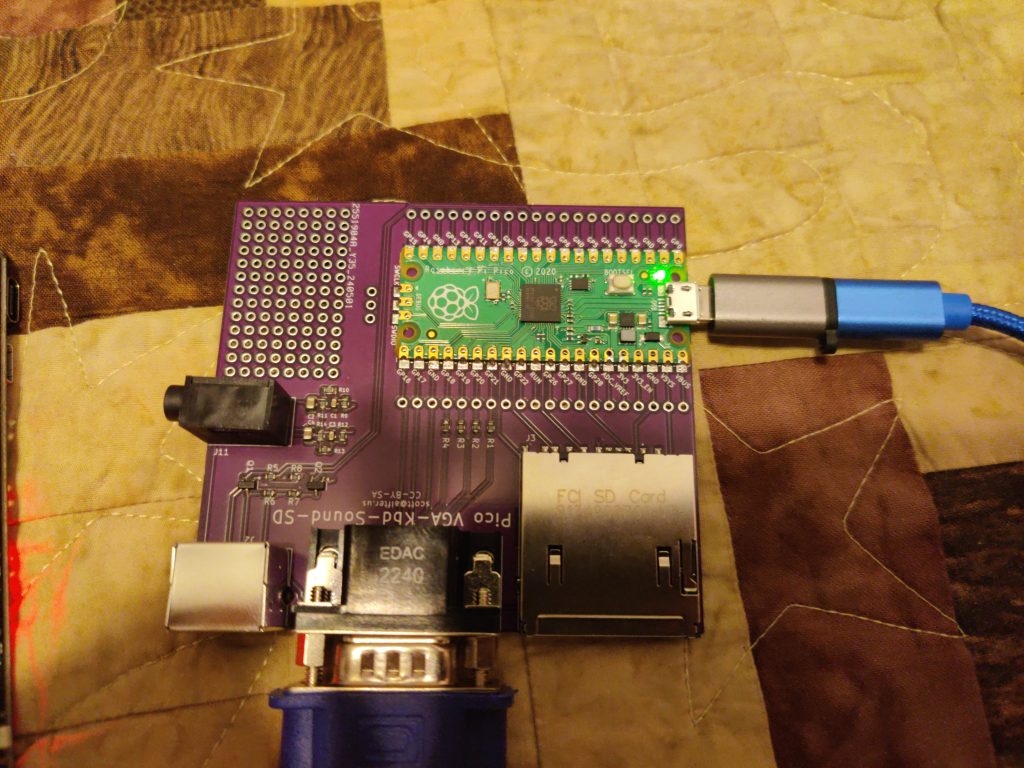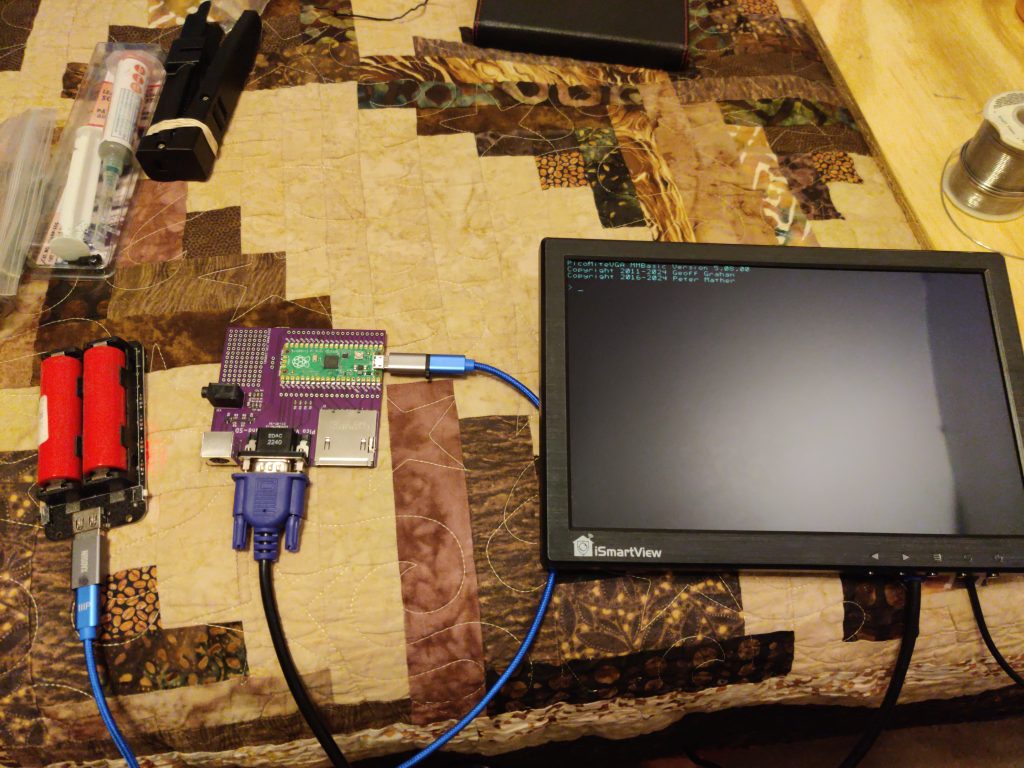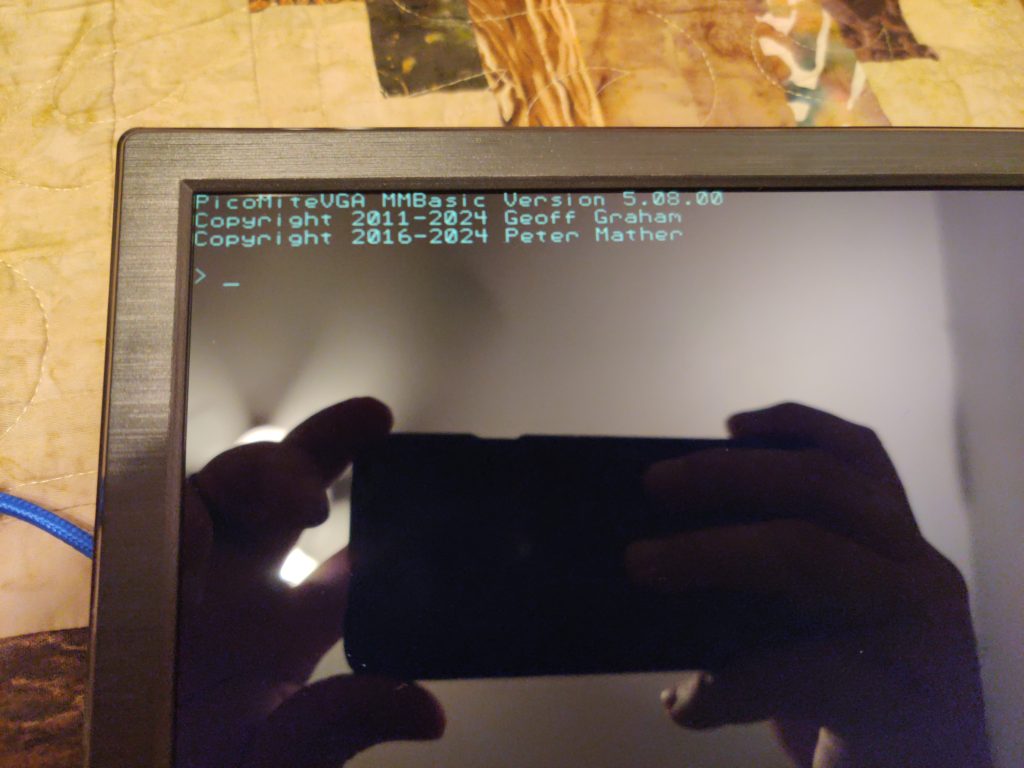At work, I have an old HP ProLiant DL385p Gen8 that had been running VMware ESXi for over a decade. We’ve migrated VMs off of it onto newer servers, so it was sitting idle. Broadcom’s recent acquisition of VMware and their plans for the product (the end of perpetual licensing, in particular) prompted a search for a replacement.
I nuked VMware off the server and installed Proxmox. I got it up and running with a mix of Windows and Linux VMs (including Windows 11 VMs running on the Opterons in this server, with no gripes about CPU compatibility, TPM availability, or anything…nice!) and a Docker host running some containers. Then I wanted to enable Ceph on Proxmox, but the RAID controller (an HP Smart Array P420i) was getting in the way. Ceph doesn’t like to work with hardware RAID.
I deleted the existing array (eight 600GB drives in RAID-6) and set about to disabling RAID on the controller. This required booting into an OS of some sort (such as a Linux distro on a USB stick) and running a command-line tool…no big deal. When I did that, though, it failed to work at first. The firmware on the card was probably whatever shipped when we bought the server all those years ago. Information I’d read online suggested that a firmware upgrade would support HBA mode, so I set out to take care of that. This post covers two topics:
- Upgrading the controller firmware to make HBA mode available. (I’m targeting the Smart Array 420i, but the methods should work for other controllers as long as you can find the firmware and it’s not paywalled by HPE.)
- Toggling HBA mode on.
Upgrading the firmware
You’ll need a Windows PE bootable distribution (I used Hiren’s BootCD PE, but any would likely work) and the online firmware flash tool for Windows. (If you have a different controller, you can probably find it through the search box at the second link.) Put each of them on separate USB sticks.
Boot your WinPE stick. Unplug it (it’s running in RAM once you get to the desktop), plug in the stick with the firmware flash tool, and run the tool. It’ll take a few minutes to do its thing, and the server’s fans will start screaming for a bit while the controller firmware is being updated. When done, you’ll be prompted to reboot. Eject the stick and reboot.
Disabling RAID
For this, you’ll need a Debian live install image. Blast it onto a USB stick with the tool of your choice (these days, I normally use the Raspberry Pi Imager for this, even for stuff that’s not ultimately running on a Raspberry Pi). Debian offers several desktop options to choose from; LXDE works and should be lighter than most.
Boot your Debian stick and wait for it to get to the desktop. Open a shell window and enter the following to install ssacli, the command-line tool that manages Smart Array controllers:
sudo bash -l
apt update && apt install -y wget
echo "deb http://downloads.linux.hpe.com/SDR/repo/mcp jammy/current non-free" > /etc/apt/sources.list.d/hp-mcp.list
wget -q -O - https://downloads.linux.hpe.com/SDR/hpPublicKey1024.pub | gpg --dearmor > /etc/apt/trusted.gpg.d/hpPublicKey1024.gpg
wget -q -O - https://downloads.linux.hpe.com/SDR/hpPublicKey2048.pub | gpg --dearmor > /etc/apt/trusted.gpg.d/hpPublicKey2048.gpg
wget -q -O - https://downloads.linux.hpe.com/SDR/hpPublicKey2048_key1.pub | gpg --dearmor > /etc/apt/trusted.gpg.d/hpPublicKey2048_key1.gpg
wget -q -O - https://downloads.linux.hpe.com/SDR/hpePublicKey2048_key1.pub | gpg --dearmor > /etc/apt/trusted.gpg.d/hpePublicKey2048_key1.gpg
apt update && apt install -y ssacli
With ssacli installed, you can now use it to enumerate the installed controllers:
ssacli ctrl all show
Odds are you’ll just have one controller in slot 0:
Smart Array P420i in Slot 0 (Embedded) (sn: <REDACTED>)
To enable HBA mode, use this:
ssacli ctrl slot=0 modify hbamode=on
With the 3.xx firmware that was on there previously, this wouldn’t work…it’d gripe about HBA mode not being supported. With the v8.32-0 firmware it’s now running, it should work, and once the card is switched over, any attached drives should now show up as /dev/sdb, /dev/sdc, etc.





